The following evidence-based resources will help you advocate for engaging arts programming that supports accelerated learning, student engagement, and shared educational outcomes.
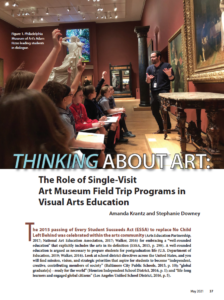
This research found that single-visit art museum field trip programs
support students’ creative thinking, empathy, and, to some extent,
critical thinking. Evidence from this research demonstrates that art museum programming is important to developing
the well-rounded child.
READ ARTICLE>
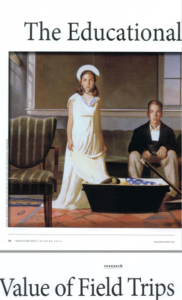
This article details the first-ever, large-scale, random-assignment experiment of the effects of school tours of an art museum. The research helps inform the thinking of school administrators, educators, policymakers, and philanthropists as to how art field trips can impact student critical thinking and increased historical empathy.
READ ARTICLE>
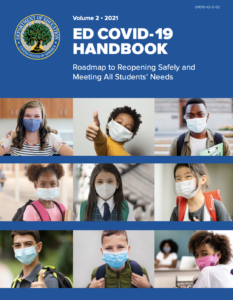
Specifically cites the importance of incorporating the arts when planning in-school, summer, and afterschool interventions to accelerate learning in response to COVID-19. Evidence suggests the arts are key to providing a well-rounded education and supporting social and emotional learning.
READ ARTICLE>>
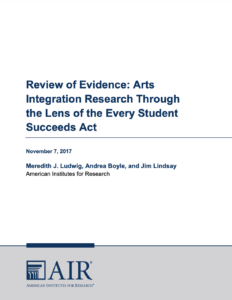
A research review of 27 studies that meet ESSA design criteria found an average improvement index of 4 percentile points in core learning areas for students receiving arts-integrated instruction.
READ ARTICLE>>
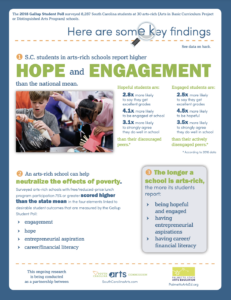
An arts-rich school can help neutralize the effects of poverty. 2018 Gallup survey data shows that arts-rich schools with free/reduced-price lunch program participation 75% or greater scored higher than the state mean in four elements linked to desirable student outcomes: engagement, hope, entrepreneurial aspiration, and career/financial literacy.
READ ARTICLE>>
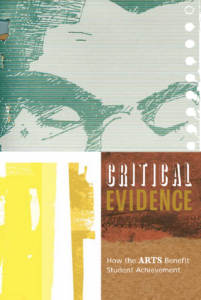
This research describes in nontechnical terms how study of the arts contributes to academic achievement and student success. It offers impartial, to-the-point reporting of the multiple benefits associated with students’ learning experiences in the arts.
READ ARTICLE>>
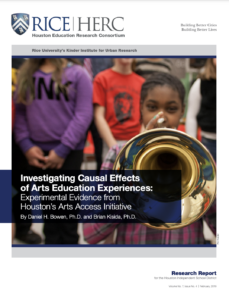
Through a randomized controlled trial with 10,548 students who were enrolled in 42 schools across the Houston area, researchers found arts-learning experiences benefit students in terms of reductions in disciplinary infractions, increases in compassion for others and improvements in writing achievement. Furthermore, arts-education experiences improve school engagement and college aspirations.
READ ARTICLE>>
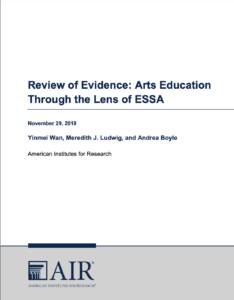
According to the meta-analysis conducted as part of this evidence review, the average effect found in the 20 well-designed studies examined was moderate and statistically significant, indicating that an average child would gain 15 percentile points in a relevant student outcome examined in this review (i.e. academic achievement, art learning, social-emotional learning, and process abilities) as a result of participating in an arts education intervention.
READ ARTICLE>>
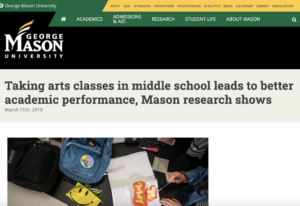
A new study from the George Mason University Arts Research Center and published in the journal Psychology of Aesthetics, Creativity, and the Arts found a link between arts elective courses in music, dance, visual art and drama, and better grades in middle school.
READ ARTICLE>>